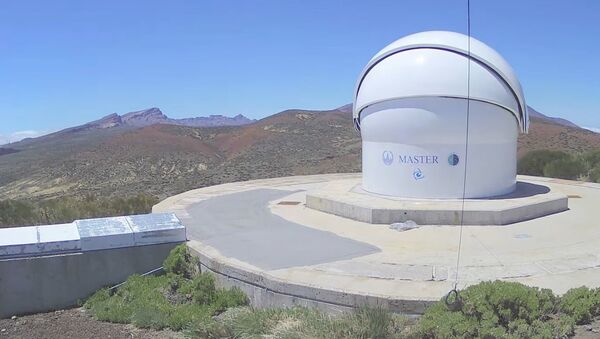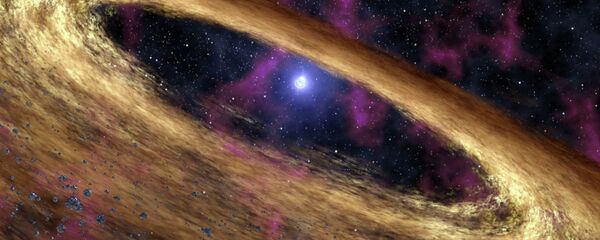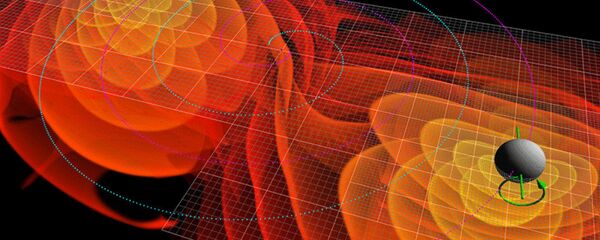MASTER, the Russian acronym for 'Mobile Astronomical System of Telescope-Robots', started its development in 2002, spreading to five Russian cities, South Africa, Argentina and the Canary Islands and beginning its fully autonomous operations in 2011.
Designed specifically to observe gamma-ray bursts and supernovas, MASTER's robotic systems, according to principal architect Dr. Vladimir Lipunov, "know everything they need to know about the skies."
"We've taught them, loading up the catalogues containing the necessary information," the astrophysicist explained to Sputnik. "The robot gets an image and immediately compares it with others. In recent years, we have discovered about 1,500 new celestial objects," he added.
Using the MASTER system, Dr. Lipunov and his team were able to detect new stars, asteroids, comets and supernovas. However, according to the system's chief designer, probably the system's greatest success to date occurred on August 17, when an autonomous MASTER telescope in Argentina successfully recorded a collision of neutron stars some 130 million light-years away.
The collision created gravitational waves – distortions in the fabric of space and time so powerful that they could be observed from Earth. The observation became the first time that astronomers were able to observe the creation of gravitational waves via the collision of celestial objects other than black holes.
Dr. Lipunov stressed that the collision of neutron stars, "real dinosaurs of our universe, lasts for just a few dozen seconds, and ends very quickly…Earlier, it was believed that only the collision of black holes could cause gravitational waves. It turns out that the same is true for neutron stars," the astrophysicist noted.
"We were able to see the area where two neutron stars collided, and this has been recognized as a very important event by our institute," Lipunov said. In fact, the scientist said, it was appropriate to compare the discovery recorded by the MASTER system on August 17 with something like the invention of electricity, since it has the potential to cause a revolution in astrophysics.





